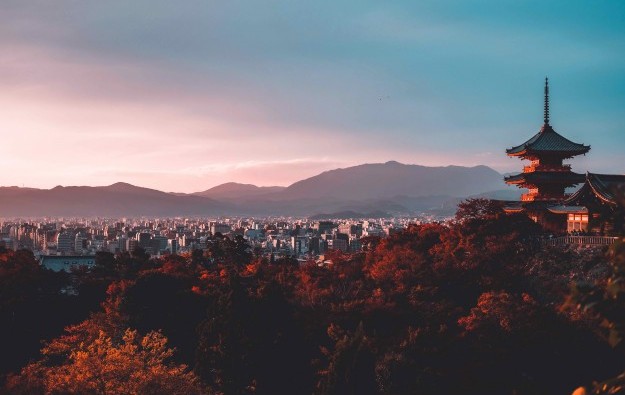Japan casino draft rules strict, but evolving: experts
Apr 20, 2021 Newsdesk Features, Japan, Latest News

Japan’s draft regulations for casinos, undergoing public consultation until May 9, are currently stringent in terms of ensuring integrity of casino operations, and are compatible with current gaming industry practice in major regulated markets, industry observers told GGRAsia. But there are still several areas of the draft regulations that require further clarity, the people indicated.
The Japan Casino Regulatory Commission announced on April 2 a draft of its intended enforcement regulations. They cover the basics of casino operations and oversight measures, among other things.
Japanese scholar Toru Mihara told GGRAsia, the aim of the regulations was to be “sufficiently stringent” to ensure the “integrity and safety” of casino operations at integrated resorts (IRs), as large-scale casino complexes with tourism facilities are known in that nation.
The draft has been drawn up under the general regulatory framework set out in the Integrated Resorts (IR) Implementation Law.
“The level of regulations should be acceptable for any operators who exercise business in a U.S. jurisdiction,” said Mr Mihara, a guest professor at Tokyo-based Toyo University, and specialising in public policy on gaming.
The nascent gaming destination of Japan will have “among the strictest regulatory frameworks” for casino gaming in the world, said CLSA Securities Japan Co Ltd leisure-sector analyst, Jay Defibaugh, in comments to GGRAsia.
“The [Japanese] government has put many measures in place in an effort to minimise harmful gaming and money laundering, such as banning junkets, collecting admission fees, restricting visitation by locals,” and requiring “personal identification authentication,” Mr Defibaugh said.
The analyst added: “The Japanese government’s stance on regulation is aggressive, as seen in the since-withdrawn proposal to mandate operators,” to report to the authorities for tax reasons if necessary, “the gains and losses of all casino visitors”. This was “clearly overly onerous,” he said.
But Japan’s draft casino regulations do not currently cover “all the necessary aspects for anti-money laundering and gambling addiction measures”, industry consultant Joji Kokuryo told GGRAsia.
“It is important to look at the big picture… there is the IR Implementation Law and other applicable Japanese laws, the IR Implementation Regulations under the law, and then licensing requirements, financial governance and gaming standards under the regulations,” explained Mr Kokuryo.
He is a former executive in the Macau casino market and now managing director of Bay City Ventures Ltd, a Tokyo-based consultancy with specialist interest in Japan’s casino liberalisation drive.
Data protection
The set of proposed casino regulations was nonetheless, overall, “compatible with current industry practice”, Mr Kokuryo said.
“… we do not yet know exactly how the gaming product testing and approval procedures will actually be carried out. The general licensing requirements are based on the Nevada model that is already one of the industry standards,” the Japanese consultant remarked to us.
Mr Kokuryo also believed that the draft casino regulations still required clarification on some “important legal aspects” and “practical” issues related to casino operation, such as the ownership of “sensitive data”, including patrons’ personal information.
As Japan’s casino gaming industry develops, the government and the IR operators could establish a collaborative relationship when dealing with regulatory issues and with mitigating the negative side effects of gaming, suggested CLSA’s Mr Defibaugh.
“The casino industry is and should be heavily regulated, but as technology and other factors compel change in IR operations going forward, we believe it’s best if Japan’s government and IR operators can actively work together to solve problems while maintaining a level of operational flexibility” for the venue promoters, Mr Defibaugh remarked to GGRAsia.
The analyst said he also believed that the appeal of Japan as a gaming and leisure destination still existed, despite the country’s regulatory framework appearing to be tougher than some commentators had initially expected.
He stated that Sheldon Adelson, the late chairman and chief executive of Las Vegas Sands Corp, an operator in the Macau and Singapore markets, had called Japan “‘the holy grail’ of the gaming industry,” in commentary at a CLSA Japan Forum investor conference in 2017.
Mr Defibaugh added: “Although the regulatory framework for Japan offers more challenges than many had expected, the appeal of the Japanese IR market underlying [Mr] Adelson’s statement, including such factors as the country’s well-developed infrastructure supporting its huge population centres, large existing gaming markets, proximity to East and Southeast Asia, and large and wealthy population, still applies.”
Related articles
-
 Japan can ease IR rules without statute...
Japan can ease IR rules without statute...Jun 13, 2024
-
 Japan needs 2nd round of IR bids soon...
Japan needs 2nd round of IR bids soon...May 16, 2024
More news
-
 Donaco EBITDA up y-o-y to above US$4mln...
Donaco EBITDA up y-o-y to above US$4mln...Jul 26, 2024
-
 HK listed Palasino upgrades Czech...
HK listed Palasino upgrades Czech...Jul 26, 2024
Latest News
Jul 26, 2024
Border-casino operator Donaco International Ltd has achieved a 164.17-percent year-on-year increase in its latest quarterly group earnings before interest, taxation, depreciation and amortisation...Sign up to our FREE Newsletter
 (Click here for more)
(Click here for more)
Pick of the Day
”We’ve got more traction outside of Macau at the moment. But Macau’s going be a bigger focus for us”
David Punter
Regional representative at Konami Australia
Most Popular
 Sheraton brand to exit Londoner Macao, to be Londoner Grand July 25, 2024
Sheraton brand to exit Londoner Macao, to be Londoner Grand July 25, 2024  Macau regulator probes unlicensed gaming agents July 24, 2024
Macau regulator probes unlicensed gaming agents July 24, 2024  Philippines gives 20k aliens in POGOs 60 days to leave July 25, 2024
Philippines gives 20k aliens in POGOs 60 days to leave July 25, 2024  Philippines-listed DigiPlus says not affected by POGO ban July 24, 2024
Philippines-listed DigiPlus says not affected by POGO ban July 24, 2024  Sands China 2Q EBITDA down q-o-q amid low hold, renovation July 25, 2024
Sands China 2Q EBITDA down q-o-q amid low hold, renovation July 25, 2024






